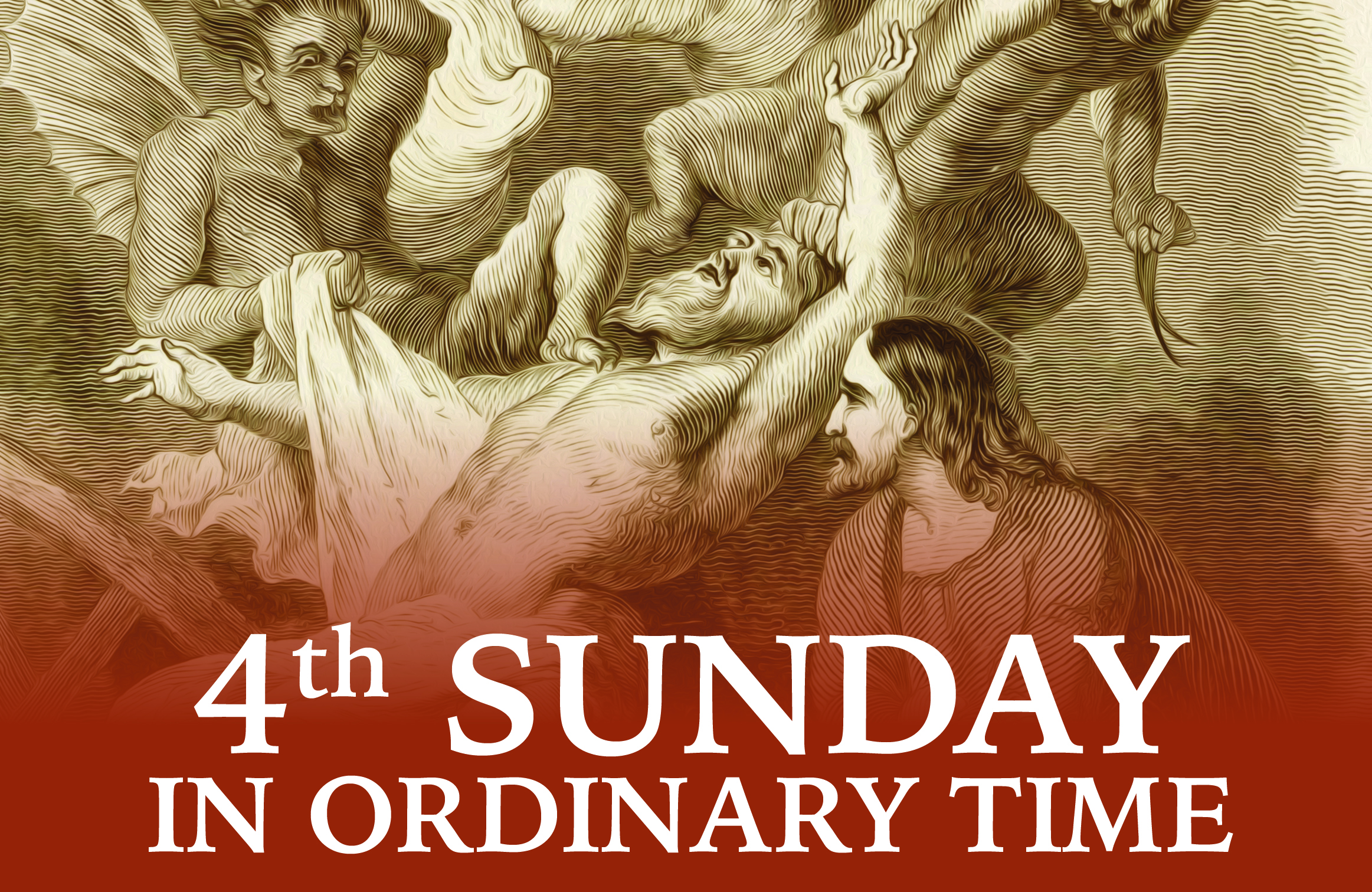The Divine Authority of Jesus

Homily for the Fourth Sunday of Ordinary Time | Year B | January 28, 2024
The power of Jesus words was astonishing. No one had seen or heard anything like this before. He teaches “with authority, not like the scribes.” The typical rabbi would always quote sources, referring to the teachings of Moses or other authorities, Rabbi’s would give reference like students writing a paper. Not Jesus. Jesus said things like: “You have heard it said by Moses, but I tell you…” and then teach them something absolutely new. Who had authority greater than Moses? For an orthodox Jew, the only authority greater than Moses was God. That’s the point, Jesus spoke with Divine authority; His was the voice of God. Moses himself prophesied that another prophet would come after him to speak to them God’s Words; the first reading today we hear Moses say “A prophet like me will the LORD, your God, raise up for you from among your own kin; to him you shall listen.” (Dt. 18:15)
Jesus demonstrates his divine authority by casting out demons. He does this a lot…like, all the time in the Gospels. Jesus speaks, and the Spirits obey, or depart. How do we explain this phenomenon of casting out spirits, exorcism? It’s very mysterious, because were dealing in the realm of angels and invisible realities. This Gospel reading came up one time when I was celebrating Mass at St. Bridget Catholic grade school in Richmond. To keep it simple, this is how I explained to the 5th grade students.
Do you have a dog? Do you give your dog commands? Does your dog obey? (Sometimes.)
Do you have a cat? Does your cat obey your commands? (No.) Do you know why cats don’t obey? Cats were once worshiped as Gods in ancient Egypt…and cats have never forgotten this.
In the Gospel story, Jesus gave some commands to someone. The man had an unclean spirit. Sometimes we call them demons. A demon is hard to explain—it’s like a really, really bad attitude. He would not obey anyone. He was yelling and would not keep quiet. So, Jesus said “be quiet.” And the man obeyed! The people were astonished, because the unclean Spirits had never obeyed anyone before.
Sometimes we have unclean spirits. The unclean Spirits have names. Let’s see if you recognize them. They are sometimes called the Seven deadly sins (These are the most familiar spirits).
Pride—Have you ever said “NO! I don’t want to” when someone told you to do something? That’s the spirit of pride.
Envy—have you ever said: “That’s not fair!” when someone else got to do something, and you didn’t? That’s the Spirit of envy.
Wrath—Did you ever get angry and hit someone, or say I hate you? That’s the spirit of wrath or hatred.
Sloth—Did you ever say “Do I have to go to school today? Or: “I’ll do it later?” That is the spirit of sloth.
Greed—Did you ever not share your toys with your brother or sister? Wanting more for yourself is the spirit of greed.
Gluttony—Did you ever eat so much candy or cookies you got a tummy ache?
Lust—You have to be old enough to kiss to have this one. Just like some people eat too many cookies, some people give too many kisses. Sometimes dogs like to kiss. But they jump up and kiss strangers and slobber all over them. Lust is like that.
Jesus commands all these spirits to go away. The spirit the man in the Gospel said: Have you come to destroy us? Yes, Jesus came to destroy these spirits and drive them all away.
The seven deadly sins sum up very well the spirits we are called to battle against in the spiritual life. pride, envy, wrath, sloth, greed, gluttony, lust.
For the Doctoral level explanation of angels and demons, see Thomas Aquinas’ Summa Theologiae, (Part One), Questions 50 through 64 on the creation and nature of the angels, and Questions 106 through 114, which includes the hierarchies of both good and evil spirits. I estimate he devoted about 120,000 words to the subject.
What does Jesus command us to do? Love one another.
Jesus said: “If you love me, you will obey my commands.”
–Father James M. Glass
